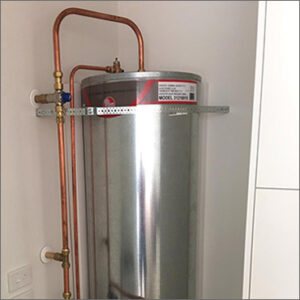A common hazard in your household that you may not be aware of – It’s your hot water! 40% of NZ homes have dangerously hot water
Most of us love a nice, hot shower. But did you know that many homes are running water that is dangerously too hot? In fact, “40% of homes have dangerously hot water” according to a New Zealand Injury prevention consultant who works alongside ACC.
How hot is too hot?
We looked at a view sources to see what advice is available and summarised a few guidelines here:
New Zealand Building Code compliance law requires hot water to be stored at 60°C or higher to eliminate the risk of Legionella bacteria growth.
The NZ Building Code also stipulates that the temperature of hot water delivered to sanitary fixtures (hand basins, baths, bidets and showers) not exceed 45°C for early childhood education centres, schools, nursing homes, institutions and hospitals or similar facilities for young, sick, elderly and disabled people; and 55°C for other buildings.
To summarise, hot water must be stored at 60°C or higher, and delivered at 45°C or 55°C, depending on the use/facility. To reiterate the Government’s advice, we must be extremely careful about how hot the water in our homes is, especially when there are children or vulnerable persons using it.
“Water heated to over 50°C can cause serious burns in less than a minute. At greatest risk are: children, because of their sensitive skin, and older people, because they have slower reaction times and thinner skin.” (Source: “The Prevention of Legionellosis in New Zealand”, Ministry of Health)
This is even more of a risk in older homes where you may still have separate taps for hot and cold – where the hot water comes out separately from the cold. Because the water coming out is not mixed, as it is with a mixer tap, the hot water coming out in a single tap can easily burn if it’s too hot.
What’s the best way to control the temperature?
There are a couple of different methods that we at Regency Plumbing use to control water temperature. The first is to temper it with a tempering valve. Tempering your water means to moderate it or tone it down. A tempering valve is a valve that mixes hot water with cold water to deliver tempered water at a regulated, constant temperature throughout an entire house, building or system. We install the tempering valve at the point where the water is heated (usually you need just one).
In New Zealand, a tempering valve must be installed by a licensed plumber. So give us a call if you aren’t sure whether you have one installed or not.
The other method of controlling how hot your water is heated to is through the use of a master water temperature control on a continuous flow hot water system. If you’re using a Rinnai or Rheem gas water heating system, or califont, you can set the maximum temperature. This is undoubtably a safe way to ensure that the water coming out isn’t hot enough to burn little hands. It’s also a great way (according to some of our clients) to limit how hot the teenagers make their showers. If they can’t create a steam room in there, they’ll probably not stay in as long.
Not only is “too hot” water a danger in your home or place of business, it’s not ideal for a couple of other reasons.
Health concerns over “too hot” water
Some health experts say that using water that is extremely hot for washing, bathing, showering can dry out and irritate the skin, exacerbating conditions like eczema. It is also thought that excessively hot showers could be less ideal for people with high blood pressure or cardiovascular disease.
Financial concerns over “too hot” water
There are definitely financial consequences of using water that is too hot when cooler temperatures will do. It costs to heat your water, so the less heating used, the lower your power bills will be. It’s a common reason why Kiwis love a good cold laundry cycle.
At Regency Plumbing, our first concern is safety. We believe safety begins with checking your hot water system and making sure it’s safe for your home or work premises.
We are also always on the look-out for ways to help you save money – and a great way to do this is to ensure that you have the right hot water heating system for your home or business. Have a look through our water heating options if you think it might be time for an upgrade.

